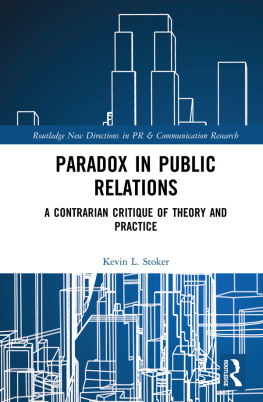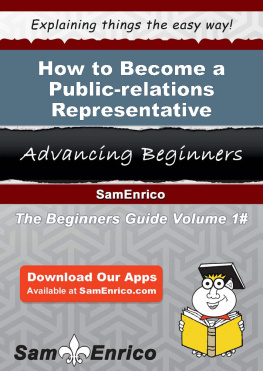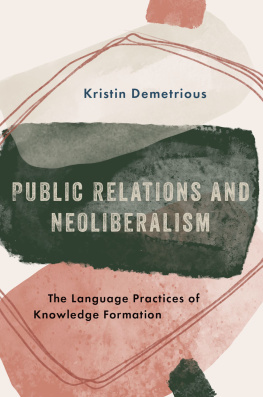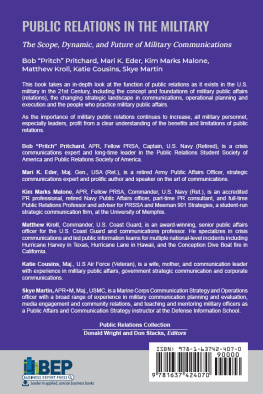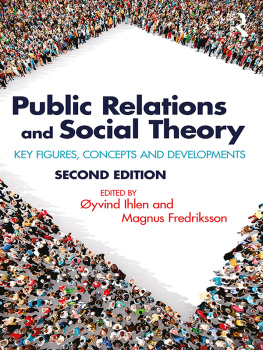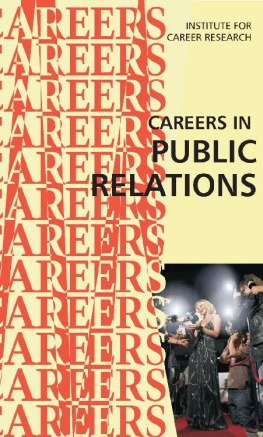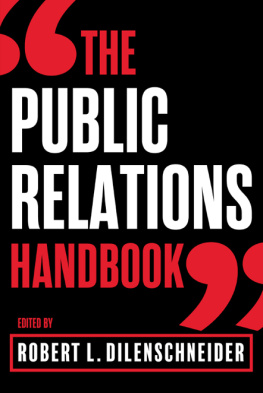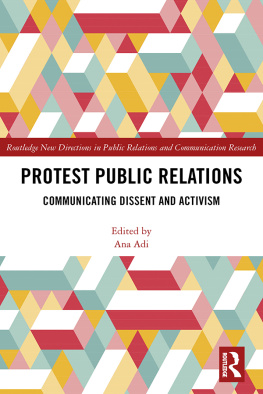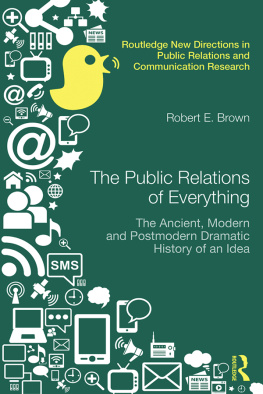Paradox in Public Relations
Paradox in Public Relations: A Contrarian Critique of Theory and Practice is a thought-provoking exploration of public relations, aiming to promote changes in meaning and perception by creating new meta-realities for public relations.
The term Public Relations was embraced by early practitioners primarily because it sounded more professional than the often-pejorative alternatives. This book argues for a reframing of some of the popular realities associated with modern-day public relations and uses psychological and organizational change theory to critique paradoxes in public relations theory and practice. By examining public relations through the lens of paradox, we can begin to identify the logical fallacies that have inhibited progress and innovation in public relations practice and theory. The book explores the paradoxical nature of key concepts, including public interest, relationship management, accountability, stewardship, loyalty, community, and ethics. It also recommends new conceptualizations for understanding the field.
This book will be of interest to media, communication, public relations, and advertising faculty and graduate students, particularly those interested in public relations theory and ethics. Scholars from other disciplines can also use this exploration of paradox in PR as a learning tool for identifying logical fallacies and inconsistencies.
Kevin L. Stoker is Professor and Director of the Hank Greenspun School of Journalism and Media Studies at the University of Nevada, Las Vegas. After eight years in professional journalism, he earned a Ph.D. from the University of Alabama and has since held faculty positions at the University of North Carolina-Greensboro, Georgia Southern University, Brigham Young University, and Texas Tech University.
Routledge New Directions in PR & Communication Research
Edited by Kevin Moloney
Current academic thinking about public relations (PR) and related communication is a lively, expanding marketplace of ideas and many scholars believe that its time for its radical approach to be deepened. Routledge New Directions in PR & Communication Research is the forum of choice for this new thinking. Its key strength is its remit, publishing critical and challenging responses to continuities and fractures in contemporary PR thinking and practice, tracking its spread into new geographies and political economies. It questions its contested role in market-orientated, capitalist, liberal democracies around the world, and examines its invasion of all media spaces, old, new, and as yet unenvisaged.
The New Directions series has already published and commissioned diverse original work on topics such as:
PRs influence on Israeli and Palestinian nation-building
PRs origins in the history of ideas
a Jungian approach to PR ethics and professionalism
global perspectives on PR professional practice
PR as an everyday language for everyone
PR as emotional labor
PR as communication in conflicted societies, and
PRs relationships to cooperation, justice, and paradox.
We actively invite new contributions and offer academics a welcoming place for the publication of their analyses of a universal, persuasive mindset that lives comfortably in old and new media around the world.
Public Relations, Branding and Authenticity
Brand Communications in the Digital Age
Sian Rees
Paradox in Public Relations
A Contrarian Critique of Theory and Practice
Kevin L. Stoker
For more information about this series, please visit www.routledge.com/Routledge-New-Directions-in-Public-RelationsCommunication-Research/book-series/RNDPRCR
Paradox in Public Relations
A Contrarian Critique of Theory and Practice
Kevin L. Stoker

First published 2020
by Routledge
2 Park Square, Milton Park, Abingdon, Oxon OX14 4RN
and by Routledge
52 Vanderbilt Avenue, New York, NY 10017
Routledge is an imprint of the Taylor & Francis Group, an informa business
2020 Kevin L. Stoker
The right of Kevin L. Stoker to be identified as author of this work has been asserted by him in accordance with sections 77 and 78 of the Copyright, Designs and Patents Act 1988.
All rights reserved. No part of this book may be reprinted or reproduced or utilised in any form or by any electronic, mechanical, or other means, now known or hereafter invented, including photocopying and recording, or in any information storage or retrieval system, without permission in writing from the publishers.
Trademark notice: Product or corporate names may be trademarks or registered trademarks, and are used only for identification and explanation without intent to infringe.
British Library Cataloguing-in-Publication Data
A catalogue record for this book is available from the British Library
Library of Congress Cataloging-in-Publication Data
Names: Stoker, Kevin, author.
Title: Paradox in public relations: a contrarian critique of theory and practice/Kevin L. Stoker.
Description: First Edition. | New York: Routledge, 2020. | Series: Routledge new directions in PR & communication research | Includes bibliographical references and index.
Identifiers: LCCN 2019056585 (print) | LCCN 2019056586 (ebook)Subjects: LCSH: Public relations. |
Public relationsMoral and ethical aspects. | Organizational change.
Classification: LCC HD59 .S756 2020 (print) | LCC HD59 (ebook) | DDC 659.2dc23
LC record available at https://lccn.loc.gov/2019056585
LC ebook record available at https://lccn.loc.gov/2019056586
ISBN: 978-1-138-67194-2 (hbk)
ISBN: 978-1-315-61665-0 (ebk)
Typeset in Bembo
by Newgen Publishing UK
Contents
Several friends and colleagues have played an important role in helping me complete this book. I want to thank my long-time friend and co-author Dr. Brad Rawlins, Interim Director of the School of Media and Journalism at Arkansas State University. Brad was the first phone call I made after writing down my initial thoughts and ideas about paradoxes in public relations. We have spent a lot of time debating and discussing the concept of paradox and its implications for public relations theory and practice.
Dr. Carl Botan, now a Professor of Communication at George Mason University, also played a role in validating this kind of philosophical research in public relations. At an International Public Relations Research Conference in Miami he counseled me to investigate Alfred Korzybskis work on Bertrand Russells Group Theory and Theory of Logical Types.
Ive been fortunate to have the support of Dr. Rob Ulmer, Dean of the College of Urban Affairs at the University of Nevada, Las Vegas. He has listened to my ideas and provided advice and direction. My former dean in the College of Media and Communication at Texas Tech University, David D. Perlmutter, also served as a friend and mentor for this project.
My friends and colleagues at the University of Nevada, Las Vegas, and Texas Tech University showed a great deal of patience listening to my ideas about paradox and helping me develop more coherent arguments. In particular, Id like to thank Dr. Weiwu Zhang, Dr. Eric Bucy, Dr. Rob Peaslee, Dr. Paul Bolls, Dr. Ben Burroughs, Dr. Gregory Borchard, Dr. Dave Nourse, Stephen Bates, and Ben Morse. I probably ruined several lunches talking about paradox.

